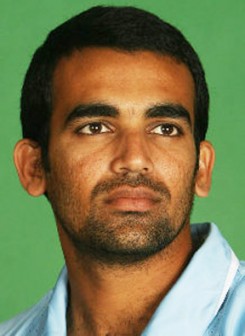(Reuters) – India’s cricketers are the most vulnerable in the international game and wilt when subjected to sustained pressure, Australia wicketkeeper and vice captain Brad Haddin said yesterday ahead of the third test between the two countries.
In a fresh dig at the visitors, who are already facing criticism back home for their meek capitulation in the first two tests Down Under, Haddin said India were “as fragile as any team in the world”.
India, ranked number one in the test rankings until last August, were whitewashed 4-0 in their previous away series in England and trail 2-0 in the current one after heavy losses at Melbourne and Sydney.

“We spoke about a bit of that when we were batting (in Sydney),” Haddin told Sky Sports Radio Australia yesterday.
“The longer we could keep them out on the field, the bigger chance we had of breaking them.
“We know this side can be as fragile as any team in the world if things aren’t going their way and they can turn on each other and the media turns on them pretty quick.
“We knew if we could keep them out there and put the numbers like we did on the board, we knew we’d get the rewards because they break quicker than anyone in the world.”

Haddin was referring to Australia’s mammoth first innings total of 659 for four declared in the Sydney test, which India lost by an innings and 68 runs for their sixth successive overseas defeat.
India’s bowling spearhead Zaheer Khan was unimpressed by Haddin’s comments, however, and advised the wicketkeeper to concentrate on his own game instead.
Haddin has been criticised for his untidy work behind the stumps, which included the dropping of a simple catch in Sydney.
“Well Brad Haddin, I think he should focus on his keeping, that looked really fragile to me,” Zaheer told reporters. “He needs to start moving.
“I think he’s doing all the talking (for Australia)… so he’s definitely playing his role.”
Sachin Tendulkar, who has been chasing his 100th international century since March, has looked most accomplished at the crease for the visitors but Haddin said the Australians had identified a weakness in the master batsman’s defence.
“What we have found is… he wants to score and he wants to feel bat on ball and he wants to get into a rhythm,” Haddin said.
“We find if we can push him a little wider, make him feel for the ball a bit, we can build enough pressure to get a chance and it’s worked in the last two tests.”
The penultimate match in the four-test series starts in Perth on Friday with the final test in Adelaide from Jan. 24.





